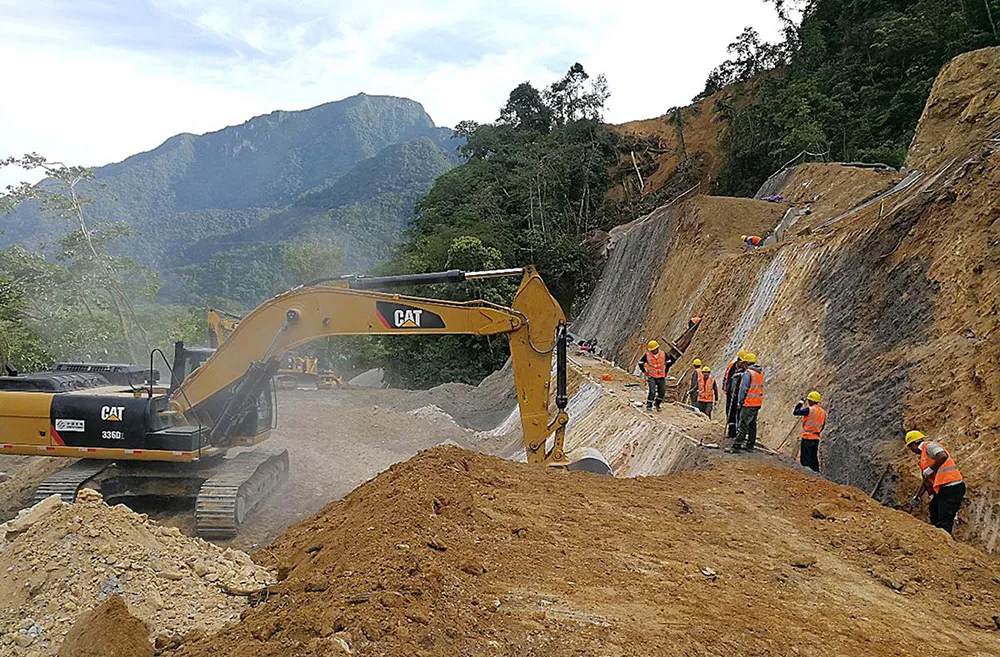A budget of US$5 billion has been set for road construction, maintenance and modernisation projects in Mexico during 2014. The programme has been set out by the Secretariat of Transport and Communications (SCT), which published 2,191 tenders by March 2014 and expects 80% of resources to be tendered by May 2014. The projects include the Indios Verdes-Santa Clara viaduct, works to 300km of rural and agricultural roads in Quintana Roo and pavement restoration in Benito Juarez. Also included are the Mexico-Pue
April 10, 2014
Read time: 2 mins

A budget of US$5 billion has been set for road construction, maintenance and modernisation projects in Mexico during 2014. The programme has been set out by the Secretariat of Transport and Communications (SCT), which published 2,191 tenders by March 2014 and expects 80% of resources to be tendered by May 2014. The projects include the Indios Verdes-Santa Clara viaduct, works to 300km of rural and agricultural roads in Quintana Roo and pavement restoration in Benito Juarez. Also included are the Mexico-Puebla elevated viaduct, the first stage of the Tampico-Ciudad Victoria project and the Sonora by-pass. The funds will allow the SCT to complete construction and modernisation projects on over 2,700km of roads, including 2,356 federal roads and 366 motorways.
However, Mexico’s road building programme could be hit hard by insufficient asphalt supplies. Bot construction companies and asphalt distributors have warned that the country is suffering a 20% shortage of the material. The shortage began to bite in November 2013 and is due in part to insufficient supplies from state-run oil company Petroleos Mexicanos (Pemex). This could delay road maintenance projects by up to 30%. Asphalt represents up to 60% of the value of such projects, according to national asphalt association AMAAC and construction sector chamber CMIC, so the shortage is a significant issue.
Both organisations have warned that the 2014 road project agenda, 27% larger than the 2013 programme, will be affected by the asphalt shortage. However Pemex has justified the shortage saying it is producing a higher quality product, and has assured AMAAC that supplies will be back to 100% in a couple of months to satisfy Mexico's 2 million tonne/year demand. In the mean-time, CMIC has asked Pemex to increase its asphalt production in response to the problem. Another reason for the shortage is down to higher demand than usual, because production at the Salamanca refinery in Guanajuato is 40% higher than projected. In February 2014, daily asphalt sales were 104% higher than in the year-ago period. Several major road projects have started recently, which has been a factor in the current situation.
SCT alone has a budget for road projects in 2014 which is 27% larger than in 2013.
However, Mexico’s road building programme could be hit hard by insufficient asphalt supplies. Bot construction companies and asphalt distributors have warned that the country is suffering a 20% shortage of the material. The shortage began to bite in November 2013 and is due in part to insufficient supplies from state-run oil company Petroleos Mexicanos (Pemex). This could delay road maintenance projects by up to 30%. Asphalt represents up to 60% of the value of such projects, according to national asphalt association AMAAC and construction sector chamber CMIC, so the shortage is a significant issue.
Both organisations have warned that the 2014 road project agenda, 27% larger than the 2013 programme, will be affected by the asphalt shortage. However Pemex has justified the shortage saying it is producing a higher quality product, and has assured AMAAC that supplies will be back to 100% in a couple of months to satisfy Mexico's 2 million tonne/year demand. In the mean-time, CMIC has asked Pemex to increase its asphalt production in response to the problem. Another reason for the shortage is down to higher demand than usual, because production at the Salamanca refinery in Guanajuato is 40% higher than projected. In February 2014, daily asphalt sales were 104% higher than in the year-ago period. Several major road projects have started recently, which has been a factor in the current situation.
SCT alone has a budget for road projects in 2014 which is 27% larger than in 2013.






